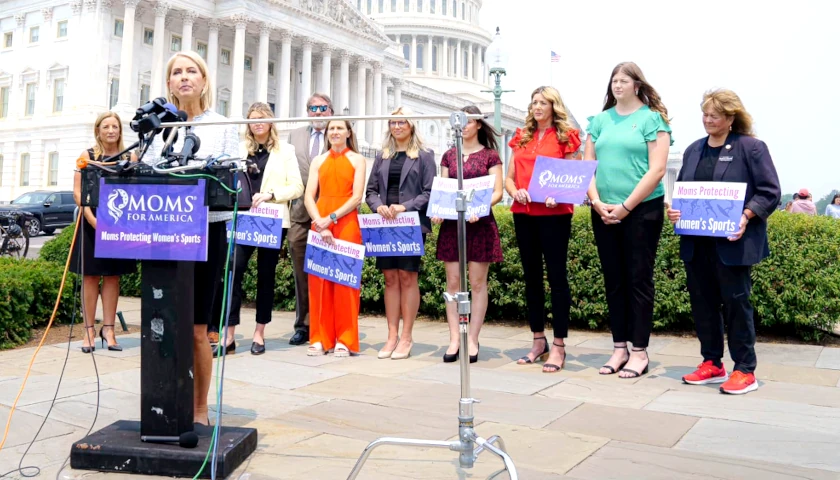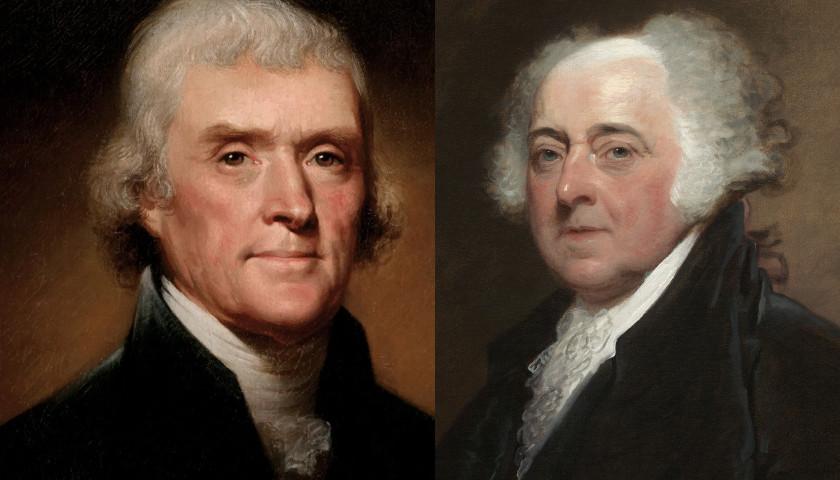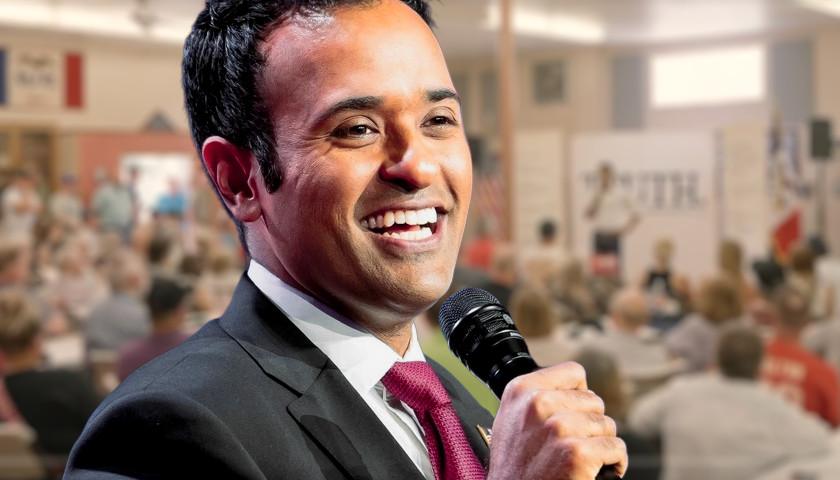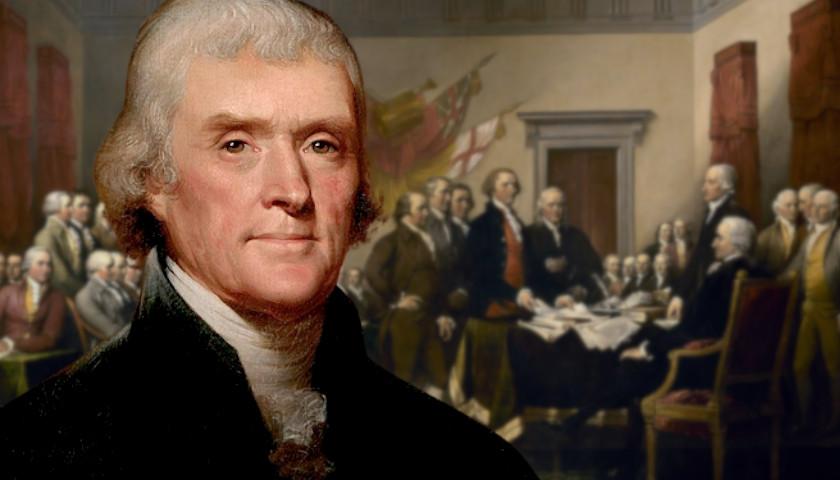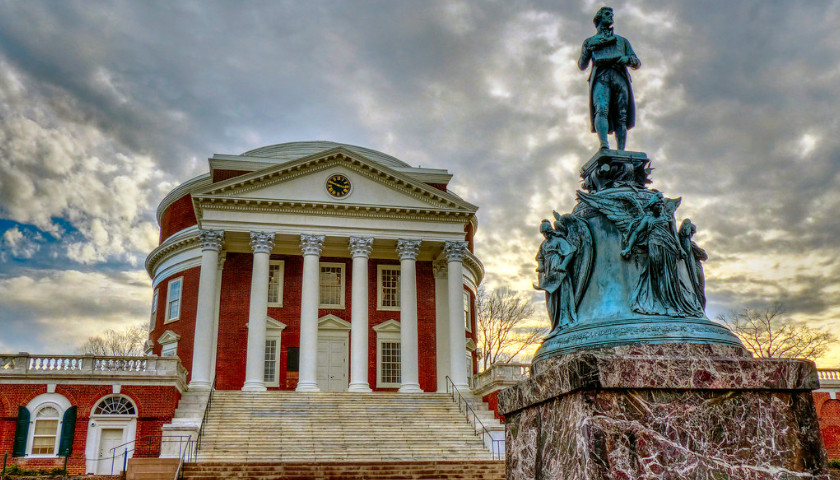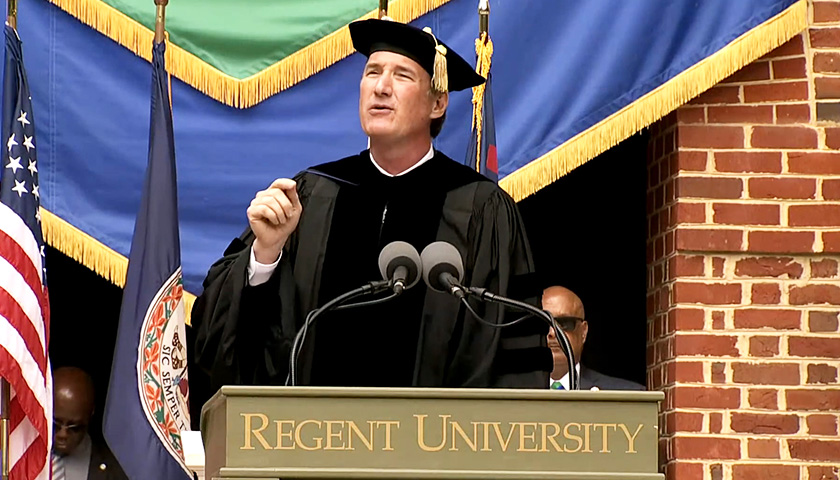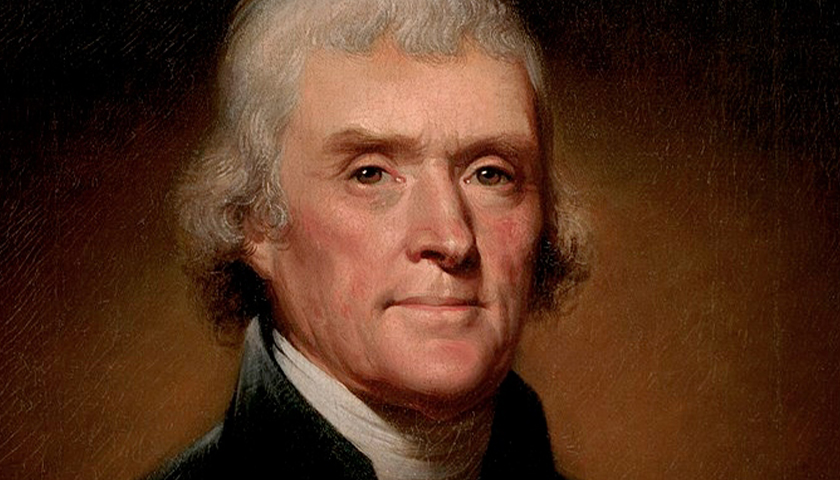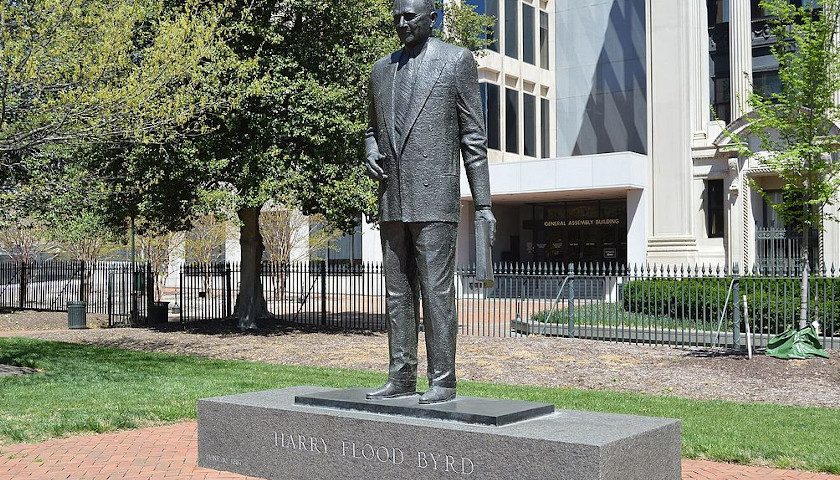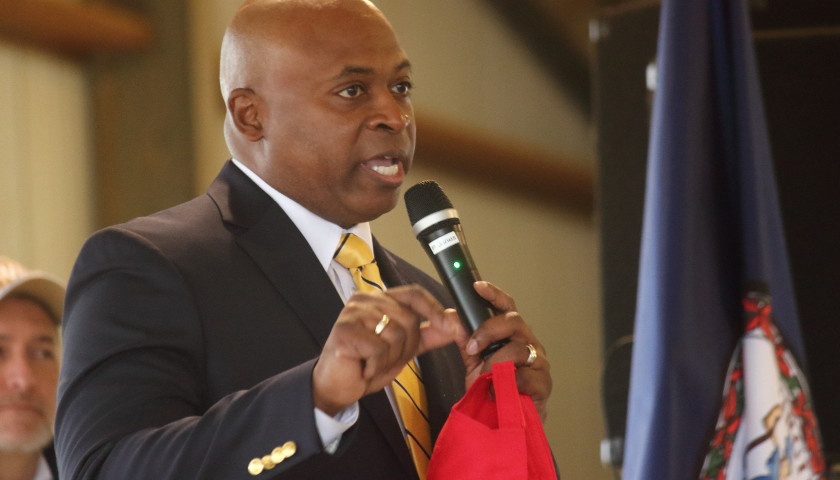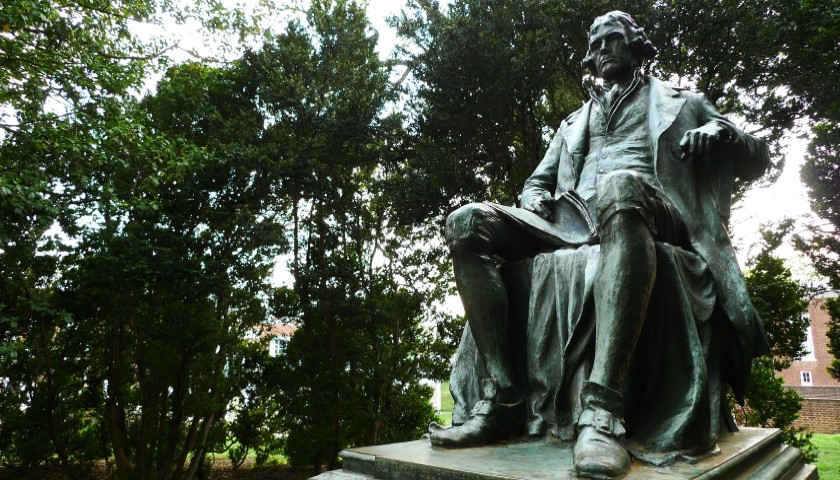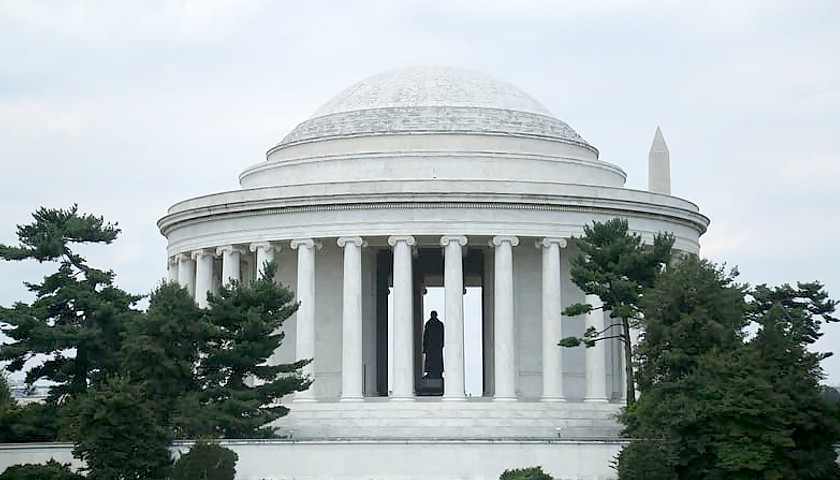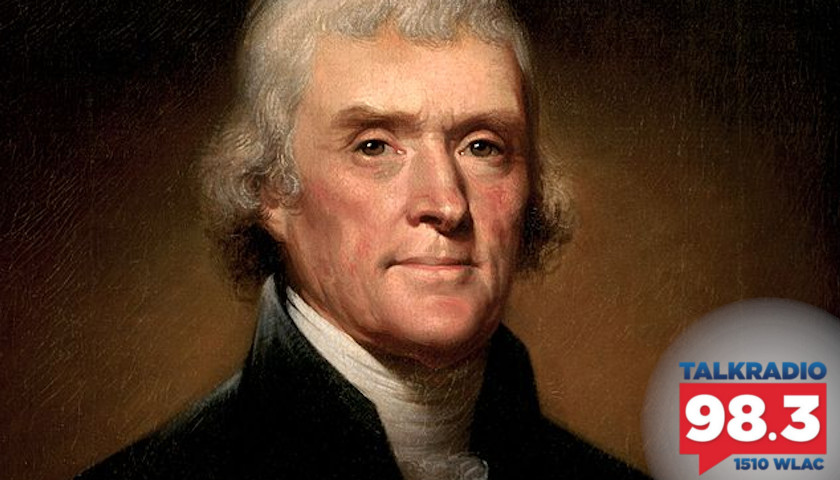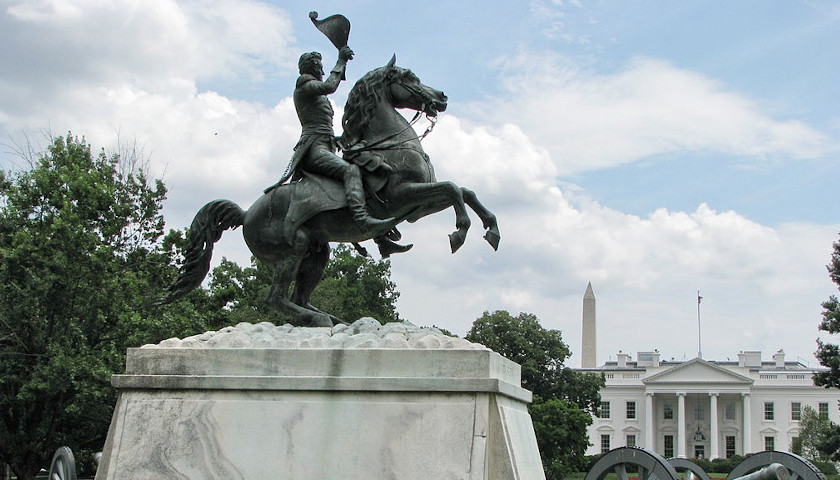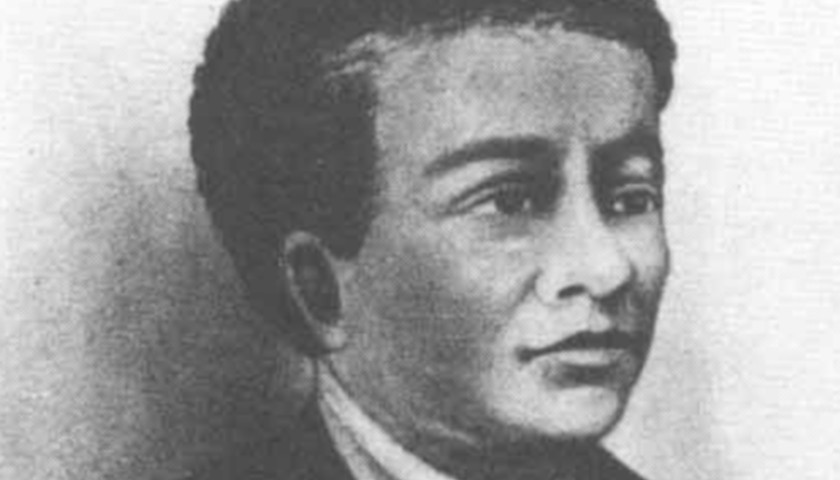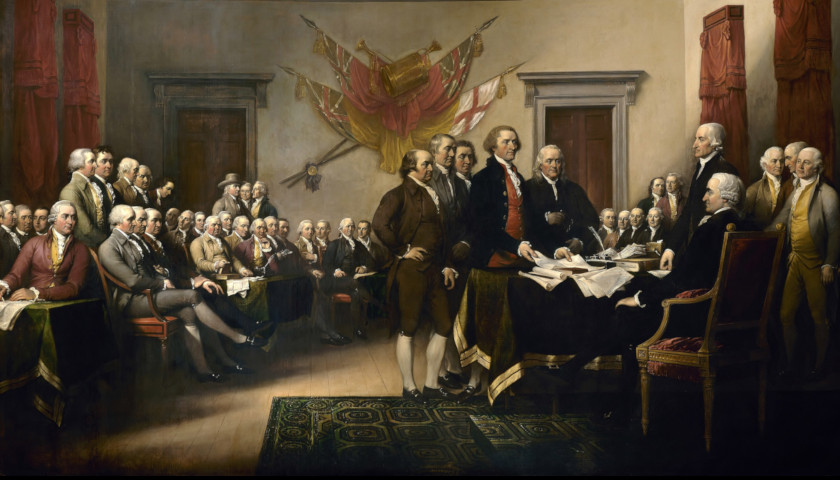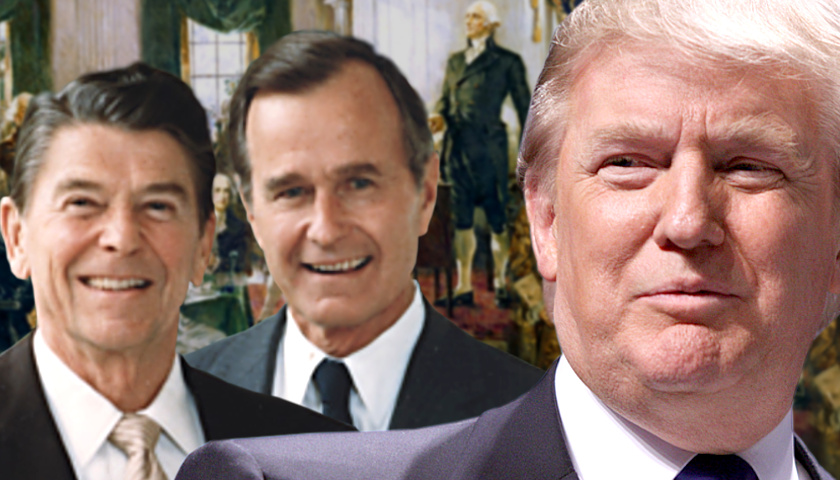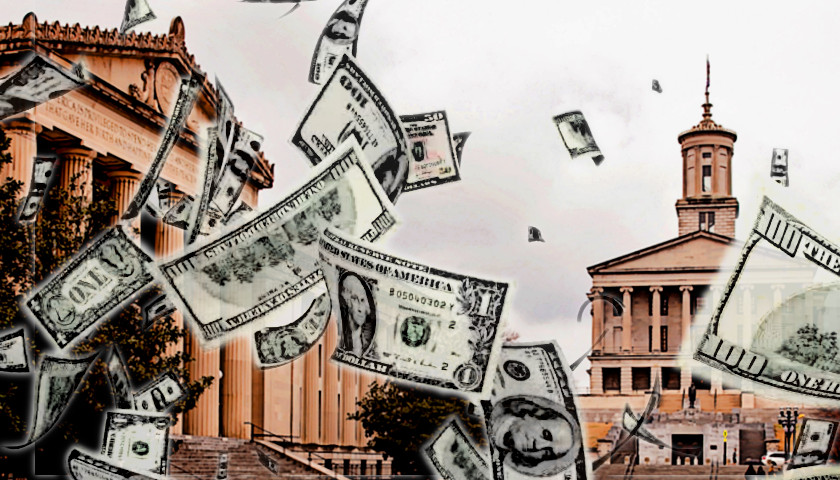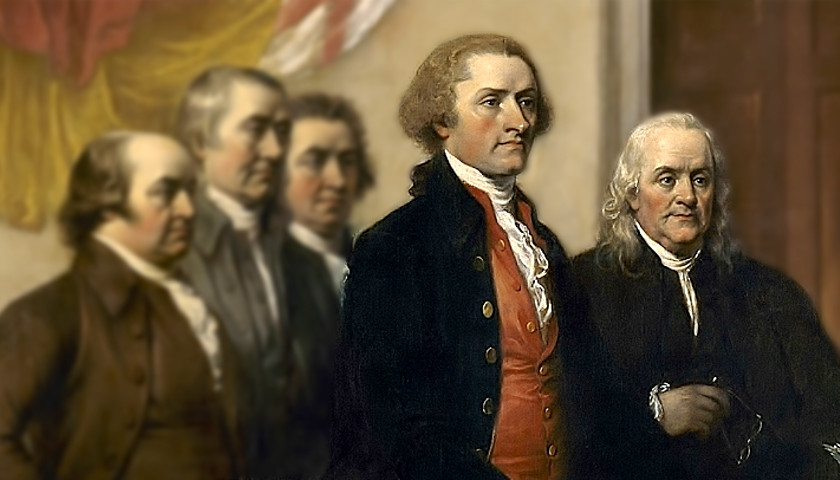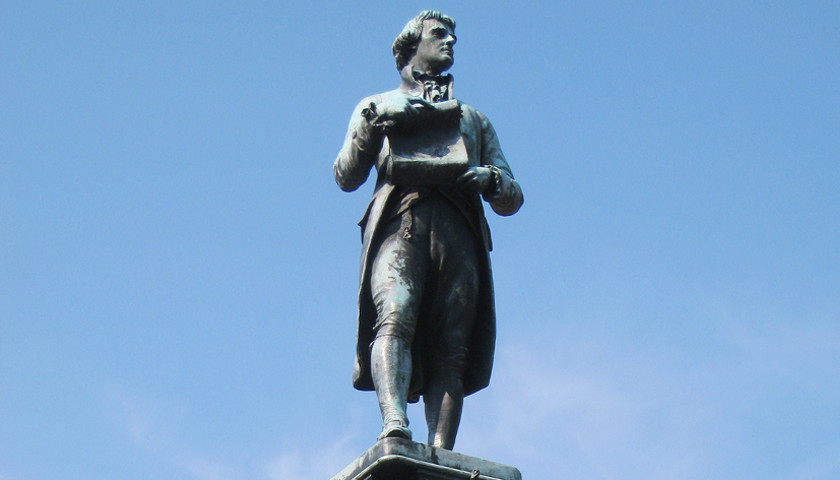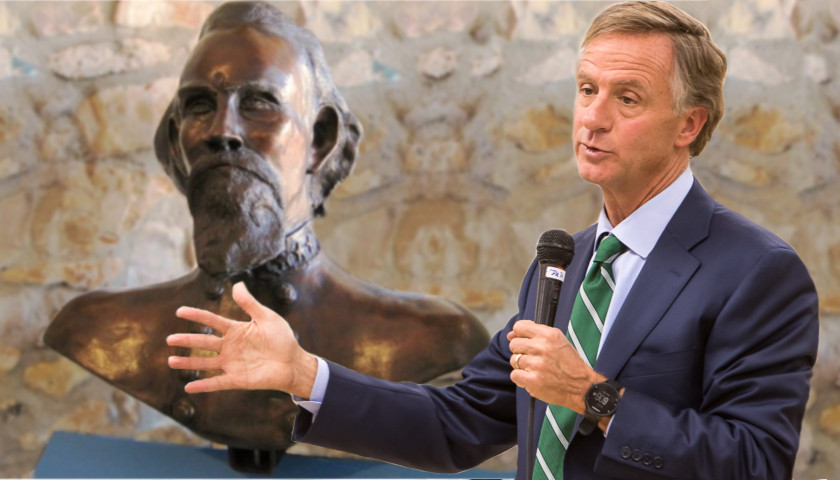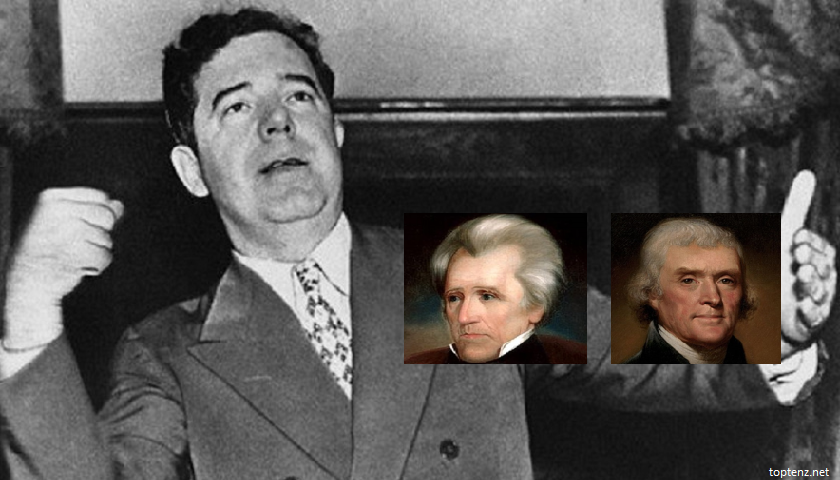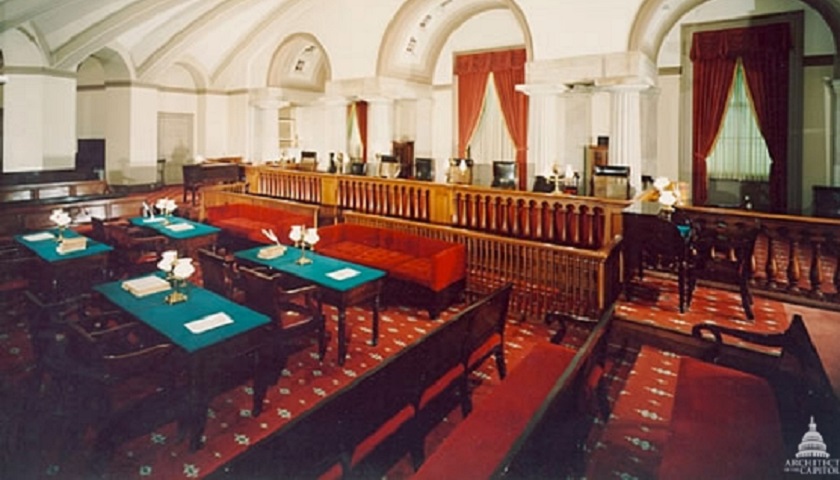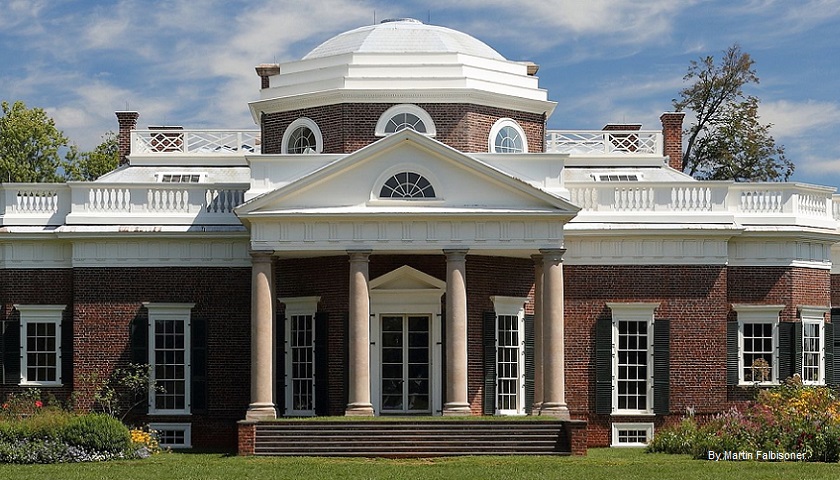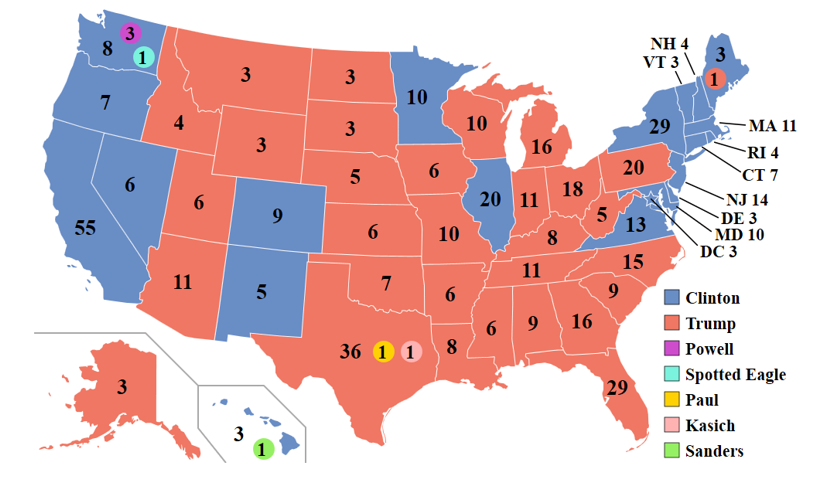The songwriter, actor, country/western singer, musician, U.S. Army veteran, helicopter pilot, accomplished rugby player and boxer, Rhodes scholar, Pomona College and University of Oxford degreed, and summa cum laude literature graduate, Kris Kristofferson, recently died at 88.
Read the full storyTag: Thomas Jefferson
Commentary: Don’t Let the Department of Education Silence Our Kids
The Founding Fathers recognized that an educated citizenry was vital to the survival of our republic. Thomas Jefferson, for example, saw education as essential to giving every citizen the opportunity to participate meaningfully in a free society.
Writing in 1818, our third president described public education as “the means to give every citizen the information he needs for the transaction of his own business … to express and preserve his own ideas … to improve his morals and faculties … to understand his duties, and to exercise his rights.”
Read the full storyCommentary: A Spark In the Minds of the People
What really happened in New York this past week in the prosecution of Donald Trump? The breathless paid script readers of the controlled “press” wanted to gloat and heap disdain on the former President. Their glee was only matched by the vapid analysis of how the verdict might impact the election this year. And a few of the quislings of the Republican In Name Only (RINO) persuasion began to daydream about a return to the Republican Party that played the role of shill to the state, supporting ever more wars of imperial design and furthering the “project” of globalization.
But of course all of these things are mere momentary delusions. In the scheme of things, the Soviet show trail in New York will have little impact on any of these things. It will, however, leave a lasting mark.
Read the full storyCommentary: The Most Important Trait for Yale’s Next President Is Courage
On August 31, 2023, Yale’s 23rd president, Peter Salovey, announced he would be stepping down. Since this announcement, much has transpired in the world of American higher education: the resignation of Harvard and UPenn presidents, the creation of campus encampments nationwide, and the cancelation of commencements at Columbia and USC. These developments point to an American higher education system that is malfunctioning. The breakdown we are witnessing at Yale’s peer institutions will continue until leaders are chosen for their courage to apply wisdom to divisive issues.
America’s Founders understood the importance of higher education. Of all his great accomplishments, only three made it onto Thomas Jefferson’s headstone: Author of the Declaration of American Independence, of the Statue of Virginia for Religious Freedom, and the father of the University of Virginia. Jefferson knew that America’s ability to be great and good – UVA’s motto – depended on the presence of high-functioning universities. America’s first polymath, Ben Franklin, famously said, “An investment in knowledge pays the best interest.” Framers like Franklin and Jefferson understood the value of academic pursuits, and their example lit a spark that motivated generations of Americans to pursue higher education.
Read the full storyRamaswamy on Vice Presidential Possibilities: ‘I Have No Plan B’
Ohio businessman and GOP presidential hopeful Vivek Ramaswamy may still be a relative “long shot” in a Donald Trump-dominated contest, but he insists he’s not running for No. 2.
In short, there is “no Plan B,” Ramaswamy says.
Read the full storyRamaswamy Lays Out Recalibrated America First Foreign Policy Vision: ‘We Will be Uncle Sucker No More’
As he takes heat for proposing that the United States roll back aid to Israel in pursuit of stronger regional relationships for the key American ally, GOP top tier presidential candidate Vivek Ramaswamy says he wants a new approach to U.S. relations with friends and foes alike.
And he’s harkening back to the founders’ vision of avoiding “entangling alliances” to get there.
Read the full storyCommentary: Thomas Jefferson’s Meaning of ‘The Pursuit of Happiness’
The idea of the “pursuit of happiness” is in our societal DNA. Yet, this “unalienable right,” immortalized in the Declaration of Independence, has often puzzled people. What exactly did Jefferson mean?
Most people think of happiness as feeling good, but that is not what Jefferson meant. Pleasure and happiness are not the same. Our happiness does not depend upon everything going right in our life or getting what we want.
Read the full storyUniversity of Virginia Student Newspaper Demands Removal of Thomas Jefferson’s Name from Campus
At the University of Virginia, the student-run newspaper issued a public call to remove the name of the university’s founder, Thomas Jefferson, from campus.
According to Fox News, the op-ed in The Cavalier Daily claimed that Thomas Jefferson “glorifies racists, slaveholders and eugenicists,” while offering no evidence to support this assertion.
Read the full storyIn Regent University Commencement, Youngkin Criticizes Higher-Ed Conformity; Earle-Sears Named Alumna of the Year
In a commencement speech at Regent University, Governor Glenn Youngkin told graduates to follow two guides: mentors and a “compass that points us in the direction of core values that define us.” He told them that they were not called to comfort, and criticized conformity in academia.
“Sometimes we are called to speak up, to say unpopular things, to invite ridicule and scorn. If I could offer one critique of higher education today, and I mean this in the most global sense, it’s that there’s too much group-think, too much conformity to modern doctrine, too much intolerance that rears itself in the form of a canceled culture,” Youngkin said.
Read the full storyGrant’s Rants: The True Definition of Separation of Church and State; No Government Interference
Tuesday morning on The Tennessee Star Report, host Leahy welcomed the original all-star panelist Grant Henry in studio for another edition of Grant’s Rants.
Read the full story‘Checkered Histories’: Minneapolis Renames School Named After Thomas Jefferson
Minneapolis Public Schools approved Tuesday the name change of two schools in the district, a process that began in 2020.
Sheridan Dual Language Elementary and Jefferson Global Studies & Humanities Magnet School will have new names in July after receiving approval from the school board this week, according to a press release from MPS.
Read the full storyCommentary: The War on Thomas Jefferson
The final decision, after years of debate, was made on Oct. 8 to remove from the New York City Council chambers the statue of the man we all know to have been a dreaded slaveholder—to the tune of 600 over his lifetime—Thomas Jefferson.
Despite that, writing at Bari Weiss’s Substack, political science professor Samuel Goldman, with whom I concur, is less than happy.
“The removal is disgraceful. Unlike monuments to Confederate leaders that display them in full military glory, Jefferson is depicted as a writer. Holding a quill pen in one hand and the Declaration of Independence in the other, he is clearly being honored for composing an immortal argument for liberty and equality.”
Read the full storyVirginia General Assembly Votes to Remove Statue of Former Governor Harry Byrd, Sr.
The Virginia Senate voted 36 to 3 Tuesday to remove the capitol’s statue of former Democratic Governor Harry Byrd, Sr. His legacy is marked by his expansion of Virginia’s economy and roads, and is tarnished by a battle to block desegregating schools. The House of Delegates had already voted in favor of the bill, HB 2208, introduced by Delegate Jay Jones (D-Norfolk.) Governor Ralph Northam is expected to approve the bill.
Read the full storyCongressional Candidate Leon Benjamin: It’s Pastor Time
Leon Benjamin is the senior pastor of New Life Harvest Church, former Richmond GOP Party Chairman, and a candidate for Virginia’s fourth Congressional district.
Read the full storyUniversity of Virginia to Contextualize Monument to Founder Thomas Jefferson
University of Virginia President Jim Ryan announced that the school will contextualize a monument to its founder Thomas Jefferson. Ryan said the move is part of a broad effort to make the university both “great and good.”
Read the full storyCommentary: D.C. Mayor’s Committee Recommends Removing Jefferson Memorial and Washington Monument
Holy Cow, the cancel culture has sunk even further. Thomas Jefferson, James Monroe, Andrew Jackson, William Henry Harrison, John Tyler, Zachary Taylor, Alexander Graham Bell, Ben Franklin, Woodrow Wilson, and many more names from American history are now personas non grata in Washington DC. A committee formed by the mayor has recommended taking their name off city-owned buildings. They also recommended removing federal assets such as the Jefferson Memorial and Washington Monument.
D.C. Mayor Muriel E. Bowser formed the District of Columbia Facilities, and Commemorative Expressions Working Group, also known as the DC FACES Working Group.
Read the full storyCarol Swain and Michael Patrick Leahy Discuss Virginia and Thomas Jefferson’s Lineage
Thursday morning on The Tennessee Star Report, host Michael Patrick Leahy welcomed all-star panelist Carol Swain to discuss her home state of Virginia and claims that Thomas Jefferson fathered four children by way of a slave woman.
Read the full storyCommentary: Why Do They Hate Thomas Jefferson?
When Al Sharpton demanded, three years ago, that the funding for the Jefferson Memorial’s upkeep be cut off, people laughed. But they’re not laughing now. Actually, they’re still laughing, but now it’s more of a nervous chuckle in dismal expectation of what’s to come. First it was Robert E. Lee, then it was Christopher Columbus, and now it’s old TJ himself.
Read the full storyLamar Alexander, Defending Andrew Jackson Statue, Begs People Not to Erase History
U.S. Senator Lamar Alexander (R-TN) this week took to the floor of the Senate to plead with people to “not try to erase our history,” especially as it pertains to former U.S. President Andrew Jackson’s statue in Lafayette Square.
During his lifetime, Jackson resided in Tennessee.
Read the full storyCommentary: Are States That Refuse to Reopen Losing the Consent of the Governed?
What happens to a government when the consent of the governed breaks down? History has many instances of this some ending with peaceful transformation, others with successful revolution as in our own history and still others with military crackdowns as we currently see in Hong Kong.
Thomas Jefferson wrote in our nation’s founding document, the Declaration of Independence, which was written as a series of reasons why the American colonists no longer accepted the rule of King George III. The opening two paragraphs of this seminal document used to be memorized by school children as part of their school exercises, a practice which was largely abandoned in the 1960s. So as a refresher, here is what Jefferson penned:
Read the full storyAmerican Inventor Series: Benjamin Banneker, a Black Tobacco Farmer Who Surveyed the Nation’s Capital
Benjamin Banneker was much more than just an inventor. As a mathematician, astronomer, landowning farmer, writer, and surveyor, Banneker was one of the most influential African Americans alive during America’s infancy.
Read the full storyJC Bowman Commentary: Walking Point on Independence Day
Our nation, our republic, is unquestionably dependent upon the active and informed involvement of our citizens.
Read the full storyJC Bowman Commentary: Lives, Fortunes, and Honor
JC Bowman writes: Freedom should never be taken for granted. Today we are debating the very concept of what it means to be a citizen of the United States of America. While many citizens are very passionate about our country, others seem disillusioned and some openly hostile. It is why the Declaration of Independence is such an important document. It expresses what it means to be an American.
Read the full storyCommentary: The Turbulent True History of the ‘Good Ole Days’ of Politics
by Jeffery A. Rendall It’s only natural in times of political turmoil – like what we’re experiencing now and for as long as I can remember – that people harken back to yesteryear for a more tranquil period when everyone got along swimmingly and went out for drinks after each encounter regardless of the rhetorical fights they engaged in earlier that day. We all recall the good ‘ol days as if there was never any conflict; people had manners “back then” and even political enemies found it within their beings to bury the hatchet in their minds rather than in someone else’s back. But was it really that way? A thorough perusal of history reveals that today’s political brawls aren’t much apart from those of the past. Even America’s Founding Fathers were hardly immune from the backbiting and triviality that’s so much in evidence today. Take James Madison and Alexander Hamilton for example. Jay Cost wrote at National Review last week, “One point that I do not linger on in [my new book] is how the two of them came to ascribe bad motives to each other. In Madison’s reckoning, Hamilton was a would-be monarchist who sought the destruction of the republic itself.…
Read the full storyJC Bowman Commentary: Dark Money + Union Money = Corrupt Politics
This election cycle we have already seen an influx of unaccountable cash, known as dark money, which pours into our state. Outside money hurts more than it helps. Tennessee voters were not swayed by big spending outsiders. It is worth noting the message the outsiders bring is almost always negative. If you don’t think this is an erosion of democracy, you’re not thinking about it hard enough. The formula is simple: Dark Money + Union Money = Corrupt Politics
Read the full storyJC Bowman Commentary: Reflecting on Memorial Day
We need to take a minute to THANK those veterans who gave their lives so we Americans can enjoy our liberty.
Read the full storyTexas School District Considering Renaming Schools Honoring Ben Franklin, Thomas Jefferson Over Slavery Debate
Ben Franklin’s face graces U.S. currency, but Texas officials may soon remove his name from one middle school over a “connection to Confederacy.” Dallas Independent School District is conducting an investigation into numerous schools in the wake of a national debate over monuments and historical figures associated with slavery. The move, which may also affect Thomas…
Read the full storyStatue Hysteria Spreads: Jefferson Vandalized at UVA
A mob of students attacked and defaced the statue of Thomas Jefferson that stands on the University of Virginia campus on Tuesday night. What reportedly began as a rally in protest of the university’s alleged failure to implement a series of radical demands made last month by UVA’s Black Student Alliance ended with an assault on…
Read the full storyGov. Bill Haslam Calls for Removal of Bust of Nathan Bedford Forrest from the Capitol
Tennessee Gov. Bill Haslam is advocating for the removal of a bust of Nathan Bedford Forrest from the Capitol in Nashville. “My position on this issue has not changed – I do not believe Nathan Bedford Forrest should be one of the individuals we honor at the Capitol. The General Assembly has established a process for addressing these matters and I strongly encourage the Capitol Commission and the Historical Commission to act,” Haslam said in a statement issued Monday. A Tennessee native, Forrest was a lieutenant general in the Confederate Army during the Civil War. Also a slave trader, Forrest was known for his brutality. According to some accounts, he became a Christian later in life and distanced himself from the KKK, which he helped start. Activists in many states are calling for the removal of Confederate monuments after violent clashes between white supremacists and leftist radicals on Saturday in Charlottesville, Virginia. Dozens of protesters gathered at the Capitol Monday to demand that the bust come down, according to Nashville Public Radio. The bust was installed in the 1970s and ever since there have been calls periodically to remove it, the last time being after the Charleston church shooting in…
Read the full storyCommentary: Is Culture Still Relevant?
The United States is a diverse country, racially and ethnically, as well as in how people choose to organize themselves socially and politically. It can be argued that our public schools are integrally situated to communicate society’s values, such as individual responsibility, patriotism, integrity, objectivity, justice, respect for others, being on time, doing a good job, working well with others, being a good citizen, and exercising democracy in government and other interactions. Americans have thus far kept our republic, and created it to be resilient and strong. However, the United States will remain free only with relentless vigilance and public engagement, which must be transmitted in our culture.
Read the full storyLouisiana Democrats Remove Thomas Jefferson And Andrew Jackson From Name Of Fundraiser
The Louisiana Democratic Party has dropped the names Thomas Jefferson and Andrew Jackson from its annual fundraising dinner. The Jefferson-Jackson dinner will now be called the True Blue Gala, reports the Associated Press. This year’s event is set to be held Aug. 26 in New Orleans. The name change is in step with similar moves by Democratic party chapters in several other states that wanted to distance themselves from the two former presidents, both of whom owned slaves. Those states include Arkansas, Georgia, Missouri and Connecticut. State Sen. Karen Carter Peterson, chairwoman of the Louisiana Democratic Party, said last fall that the dinner would be rebranded “to reflect the progress of the party and the changing times.” Party leaders decided on the new name after conducting surveys and having conversations with Democrats across the state. While they are considered founders of the Democratic Party, Jefferson and Jackson are increasingly criticized because they owned slaves. Jackson is also controversial because he signed the Indian Removal Act which led to the Trail of Tears, the forced removal of Natives Americans from their ancestral homes, primarily in Tennessee and Georgia. Jarrett Stepman, an editor for The Daily Signal, called the scrubbing of their names…
Read the full storyCommentary: A Bold Vision for Education
For the first time in history, children have new and different ways of acquiring and accessing, deciphering and digesting information instantly. Children are now contributors, not just copiers, of existing knowledge.
Read the full storyConstitution Series: Judicial Review
This is the eighth of twenty-five weekly articles in The Tennessee Star’s Constitution Series. Students in grades 8 through 12 can sign up here to participate in The Tennessee Star’s Constitution Bee, which will be held on September 23. The Separation of Powers and Federalism are two foundational concepts of the Constitution, based on the idea that checks and balances between competing interests will prevent any one individual or group from obtaining and exercising abusive powers within our republic. In the national government, the checks and balances of the Separation of Powers were designed within the Constitution, which gave specific powers to the three equal branches of government— executive, legislative, and judicial–but also placed limits on the powers of each branch. The legislative branch, which passes laws, approves Presidential nominations for Cabinet positions and the Supreme Court and other federal courts, appropriates money, and can impeach the president and federal judges. The executive branch can veto legislation, nominate judges, and administers the day-to-day operations of the government. The judicial branch has asserted, without much resistance, the power to declare laws passed by Congress and Presidential actions unconstitutional–a principle commonly known as “judicial review.” Unlike the powers granted the…
Read the full storyCommentary: Planting the Roots of the Republic
Thomas Jefferson was not silent on the most effective manner to pass freedom to future generations depended on providing a quality education to our children. An educated citizenry is the roots that our republic is planted on.
Read the full storyThe ‘Aha Moment’ at the Tennessee General Assembly This Year
The idea of a citizen-legislator has gone by the wayside and been replaced by the career politician. Unless there is more transparency and inclusion, there may well be a demand for change in leadership. For certain in 2019 there will be great change, and quite possibly the “drain the swamp” echo from 2016 will filter down to state politics in 2018. It may be time for the state to consider term limits.
Read the full storyConstitution Series: The Electoral College and the Selection of the President
This is the third of twenty-five weekly articles in The Tennessee Star’s Constitution Series. Students in grades 8 through 12 can sign up here to participate in The Tennessee Star’s Constitution Bee, which will be held on September 23. The method of selection of a President to head the executive branch for a term of four years is the most notable illustration of the foundational concept of Federalism seen in the body of the text of the Constitution of the United States that emerged from the Constitutional Convention. Federalism, as we explained earlier in this series, “defines the relationship between the national government and each of the state governments that comprise our republic. Both entities–the national government and each state government–remain sovereign, while the powers of governance and responsibilities to the citizenry are balanced between the two.” And it was the Tenth Amendment, ratified in 1791 and part of the original constitutional “compact” or “covenant” between the states and the national government upon which our republic was organized: The powers not delegated to the United States by the Constitution, nor prohibited by it to the States, are reserved to the States respectively, or to the people. “The executive Power…
Read the full storyCommentary: Education for the Next Generation
People of great accomplishment do not sit back and let things happen to them. They go out and make things happen. They pursue new or improve existing skills, insights, and ideas. If they are not learning, they understand they are not growing.
Read the full storyThomas Jefferson & American Education
An essential objective in public education is, and must be, an educated citizenry that creates an informed electorate.
Read the full story

